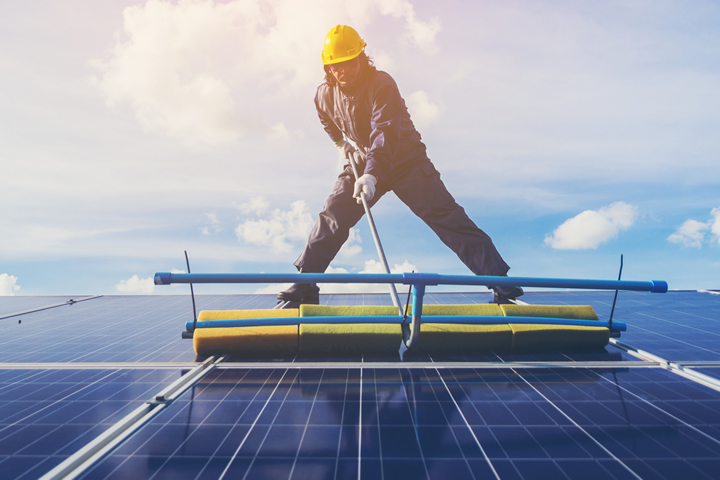Should Installers Buy or Lease Equipment for Renewable Energy Installation?

As renewable energy grows, the firms installing this infrastructure will grow. This development may encourage you to consider acquiring more equipment, which leaves you with a choice. Should you buy your installation equipment or lease it?
The answer will depend on several factors, as different paths are ideal in different situations. Here is a deeper look at the pros and cons of buying vs. leasing renewable installation equipment to help you make the best choice.
Pros and Cons of Buying Equipment
The most significant advantage of buying equipment is you will own it outright. That gives you complete control over its operation, maintenance and any upgrades, as well as opening the opportunity to sell it eventually. You will also be able to deduct part of its price each year on your taxes through depreciation, which can help offset operating costs.
The most significant downside to that ownership is it comes with higher upfront costs. You can still split payments over time, but your down payment will be higher and you will need a higher credit score to qualify. Similarly, you will also be responsible for maintenance-related costs, though tax benefits may help account for these expenses.
Despite these costs, buying your equipment outright is typically cheaper in the long run, assuming you keep using it for some time. The downside to that longevity is upgrading to newer models may mean taking a loss.
Pros and Cons of Leasing Equipment
Leasing your installation equipment means lower upfront costs, by contrast. You may not have a down payment at all in some cases. That can be helpful in this industry, as infrastructure like geothermal energy systems have significant price ranges, even without high installation costs. Keeping your operational expenses low through leasing can help you offer lower prices to customers, leading to quicker growth.
Leasing is also more accessible with a lower credit score and you often do not have to worry about maintenance costs. However, you cannot claim depreciation from this equipment and the lifetime costs are generally higher.
If you lease your equipment, you may be able to swap it for newer models more easily. It is worth noting, though, that being able to do so depends on the terms of your leasing contract.
How to Decide When to Buy vs. When to Lease
Overall, buying equipment is better for long-term profitability, whereas leasing is better for quicker growth. Review your goals and company cash flow to decide which is more important to you.
Whether it is better to buy or lease may also vary by the specific machine in question. Leasing could make boom lifts — which are more expensive than scissor lifts but are more maneuverable and reach further — more affordable. You may want to lease them, especially if you only use them for some jobs. Equipment you will need longer-term or more often may be better to buy.
Maintenance is another thing to consider. Buying equipment means higher repair costs, but you have complete control over it. That lets you enable predictive maintenance, which can reduce downtime by up to 45%, helping you get the most out of your equipment. Leasing means lower costs, but you will lack control, potentially waiting longer for needed repairs, which may get in the way of business.
Finally, consider your organization’s cash flow. Buying may be ideal if you have a strong cash flow, which is becoming increasingly likely as renewable energy grows. Conversely, leasing may be better if you are a relatively new company or have lower operating margins.
Find the Best Option for Your Business
Making the most of renewable energy installation means getting the most out of your equipment. What that looks like will vary between businesses. Learning about the relative pros and cons of buying vs. leasing is the first step.
When you know what you can get from each payment model, you can find the best way forward for your company. You can then drive growth or profits while helping others protect the environment.
Comments (0)
This post does not have any comments. Be the first to leave a comment below.
Featured Product

